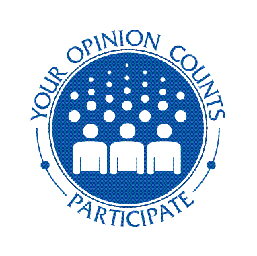 Ad Age reports on the refusal of record numbers of consumers to participate in surveys. With response rates falling to under 10% for some opinion surveys, top market research executives, as well as representatives from high-profile marketers including Procter & Gamble Co., General Motors Corp., IBM and McDonald's, met last week in Chicago to develop ways to address the growing problem of "opinion fatigue." "It's like the hole in the ozone layer," said Shari Morwood, VP-worldwide market research at IBM. "Everyone knows it's a growing problem. But they just ignore it and go on to the next project."
Ad Age reports on the refusal of record numbers of consumers to participate in surveys. With response rates falling to under 10% for some opinion surveys, top market research executives, as well as representatives from high-profile marketers including Procter & Gamble Co., General Motors Corp., IBM and McDonald's, met last week in Chicago to develop ways to address the growing problem of "opinion fatigue." "It's like the hole in the ozone layer," said Shari Morwood, VP-worldwide market research at IBM. "Everyone knows it's a growing problem. But they just ignore it and go on to the next project."
some quick highlights:
•30% of households headed by consumers 25 and younger now only have cellphones and are impossible or highly expensive to reach by phone
•Just 0.25% of the population supplies 32% of responses to online surveys, said Simon Chadwick, former head of NOP Research in the U.K. and now principal of Cambiar, a Phoenix consultancy, citing research by ComScore Networks
•More broadly, he said, 50% of all survey responses come from less than 5% of the population
•the problems boil down to "the integrity and methodology," with respondent-participation problems one possible factor
•Online research -- once touted as a way to improve respondent cooperation -- now may be making it worse. While it's easier to respond to online surveys, it's also easier to crank them out, leading more consumers to tune them out, said Patrick Glaser, director-respondent cooperation for the Council for Marketing and Opinion Research
•Bill Lipner, chairman-CEO of Insight Express, suggested a $50 million industry war chest to market the importance of participating in market research, which several participants said would be impossible to raise and possibly ineffective
•VNU's Nielsen Media Research has actually seen respondent rates rise from 36% to 45% the past five years, said Paul Donato, chief research officer. That's largely because it pays respondents handsomely for their two-year commitments -- so handsomely that Mr. Donato acknowledged that some on the Media Research Council think it may bias results -- allowing panelists to buy cable subscriptions and DVRs
Share ideas that inspire. FALLON PLANNERS (and co-conspirators) are freely invited to post trends, commentary, obscure ephemera and insightful rants regarding the experience of branding.
Monday, October 02, 2006
Ad Agency Deathwatch: Opinion Fatigue
Subscribe to:
Post Comments (Atom)


No comments:
Post a Comment